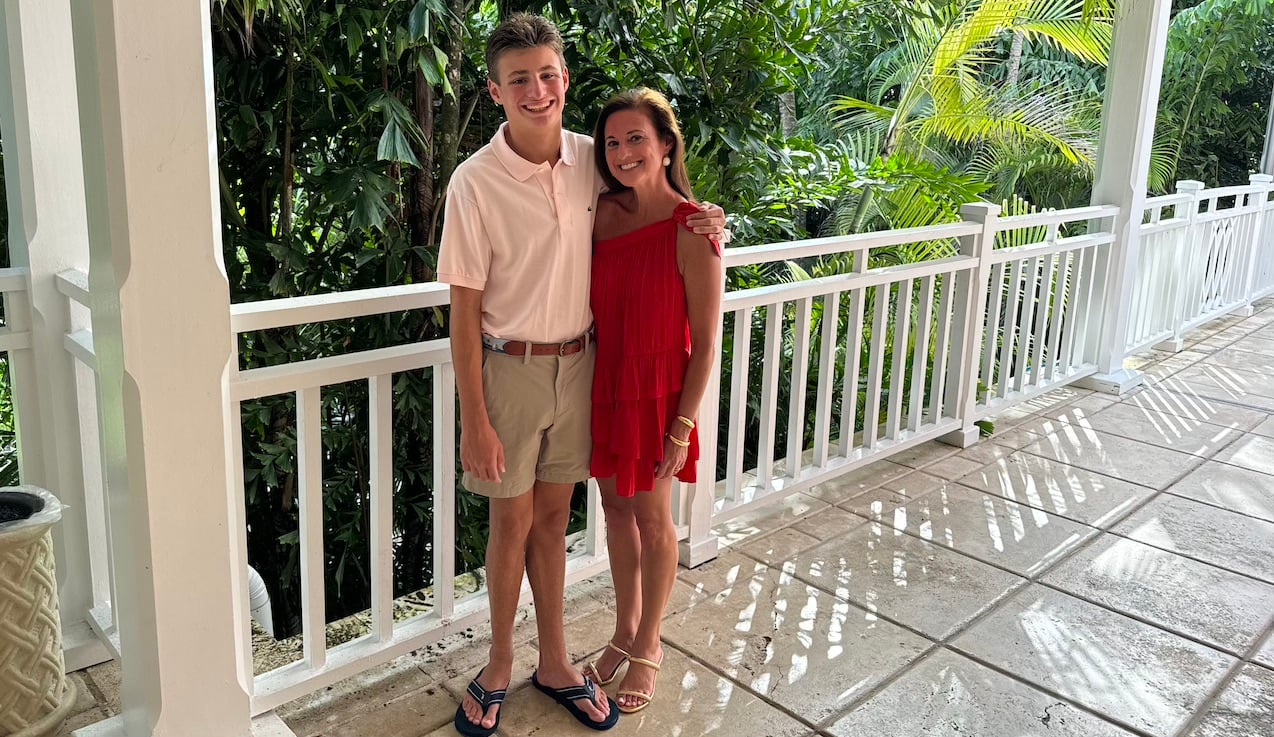Last week, Max, my middle child, attended his first college fair. Initially, I wasn't super encouraging about it.
He's only a freshman. And, my own professional experience working at college fairs was not particularly memorable. I spent many days and nights as an admissions officer and dean of admissions standing behind tables at college fairs, talking to "interested" students about the college I represented, wondering if I was making an impact.
But Max seemed surprisingly excited before the college fair, and especially afterwards. That night, he couldn't wait to tell me all about it. Mind you, this is a kid that used to proclaim how much he hated school. Now, it was like I was talking to a different kid.
I wouldn't say the college fair was the impetus for Max's transformation. I have definitely seen Max mature in the last year. But last week's college fair sparked something in him that was undeniable. It reminded me of the impact that a simple "college" experience can have on a young person, whether it's a college visit, college fair, or even an older kid talking about how much they love their experience in college.
Max's first college fair was a resounding success. Here's why:
1. Max noticed that a lot of students headed to talk to the popular, larger colleges, while he stuck to mostly smaller ones that were less well-known.
He noted that there was no line at the tables he wanted to go to and he didn't have to wait to talk to the admissions officers. He commented that he had real conversations with each of them. Note, the popular colleges at the college fair tend to be the popular colleges that many students will apply to and attend. It can sometimes be an indication of how competitive the admissions process is and/or how big of a community the college has. The colleges at a college fair that a student checks out are often an indication of the types of colleges they end up applying to.
2. Max brought up a major choice with each college and it wasn't the one we had discussed the night before.
However, I was thrilled when he told me he was interested in a Classics major as he is enjoying Latin more than any other class he takes. The admissions officers were visibly excited about his interest. I am not surprised. Classics is rarely listed as a possible major on an application. While most colleges offer this major, it tends to have very few students who do it, which means a lot of hands-on attention and support from faculty members, smaller classes, and personalized experiences. It is a smart major to list for Max if he's genuinely interested in it. Smaller majors allow students to stand out in an applicant pool and on campus.
3. When Max went up to the one highly selective college that was at the college fair, the admissions officer immediately told him that he needed a 3.8 to 4.0 GPA just to be competitive.
Some might get turned off by this. But I appreciate her transparency, straightforwardness, and no-nonsense approach. Max paid attention to his grades this year, but he hadn't thought much about his cumulative GPA before this moment. That night, we talked about how a student's curriculum and grades count the most in the admissions process. He nodded his head with a seriousness I had never seen before.
4. Despite getting instructions in advance from the school's counselors on how to scan his contact information for each college he visited, Max walked away from two tables without providing it.
He said he was so excited about the conversations he had that he forgot. Bless his sweet heart! Luckily, both times, the admissions officer called him back to their table in order to provide his contact information. Admissions officers are there for a reason. They need to collect as many names from that fair as they can in order for the college to start marketing to students. From a student's perspective, submitting your contact information is important for colleges that track "demonstrated interest" in the admissions process. Visiting with a college during a fair counts as demonstrated interest and can increase a student's chances of admission at certain colleges. Don't forget to provide your information at college fairs, college presentations, and college visits. Every little bit can help if a college tracks demonstrated interest.
5. After the college fair, Max told me he wanted to do more this summer than just swim and play tennis.
That night, he emailed the person in charge of the school's enrichment program for local kids, hoping to line up some service hours for the summer. I told him a few times about the importance of doing other activities besides sports. It wasn't until the college fair that he did something about it.
READ MORE: 3 Things I'm Making Sure My Son Does as a High School Freshman
I mentioned in last week's blog that college fairs are low-hanging fruit for students. They are not a big time commitment. You can add your name to a college's mailing list. And you'll get some glossy brochures. I often wondered how meaningful college fairs were for students when I was an admissions officer and dean of admissions. But Max's experience made me realize what an impact they can make on a student.
There is time between now and when Max applies to college. A lot could change—his grades, academic interests, and what he's looking for in a college. But that college fair he attended last week was a gentle introduction of the admissions process to a young man who is coming into his own. I can't thank those admissions officers and the high school's counselors enough for their part in this.












